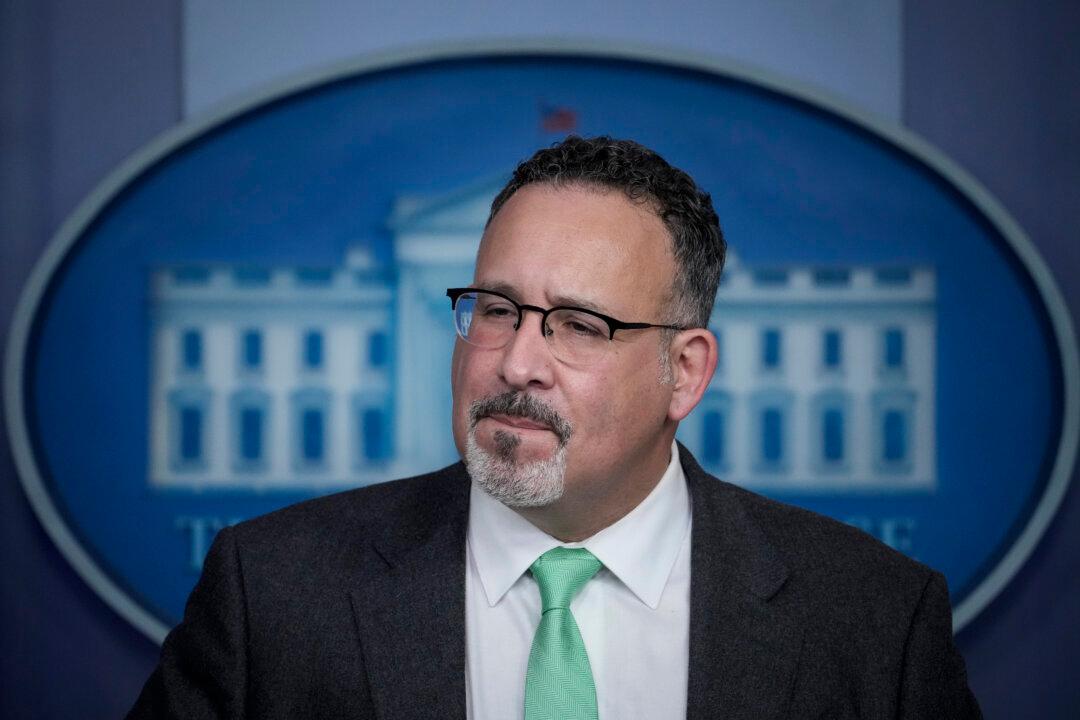At a budget request hearing Wednesday, Rep. Tom Cole (R-Okla.) confronted Education Secretary Miguel Cardona over a proposed new rule that would direct a federal grant to prioritize the teaching that America is inherently racist.
Cole, a vice ranking Republican member of the House Appropriations Committee, said he was “deeply concerned” by the Education Department’s new priority criteria for a $5.3 million American History and Civics Education grant. The proposal, which is currently undergoing a 30-day public comment period on Federal Register, specifically cites the New York Times’s “1619 Project” and the works of critical race theorist Ibram X. Kendi as exemplary materials for K-12 educators to use.





